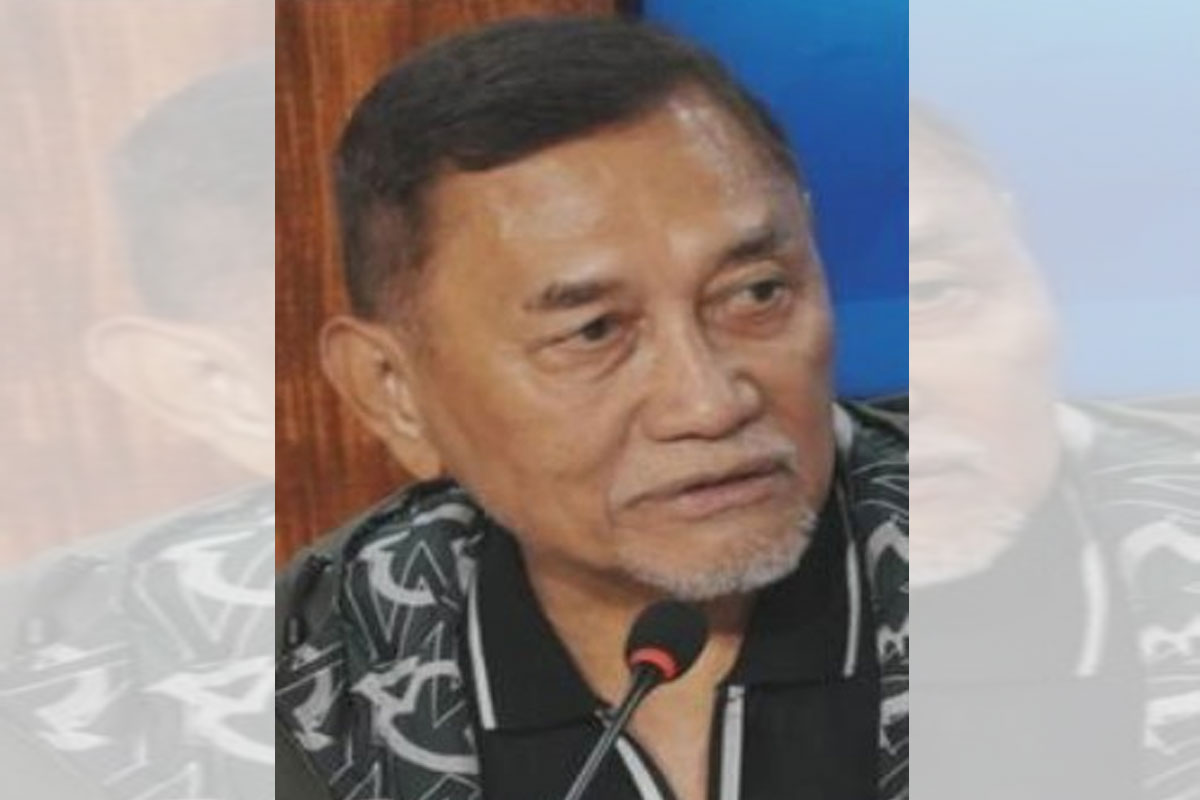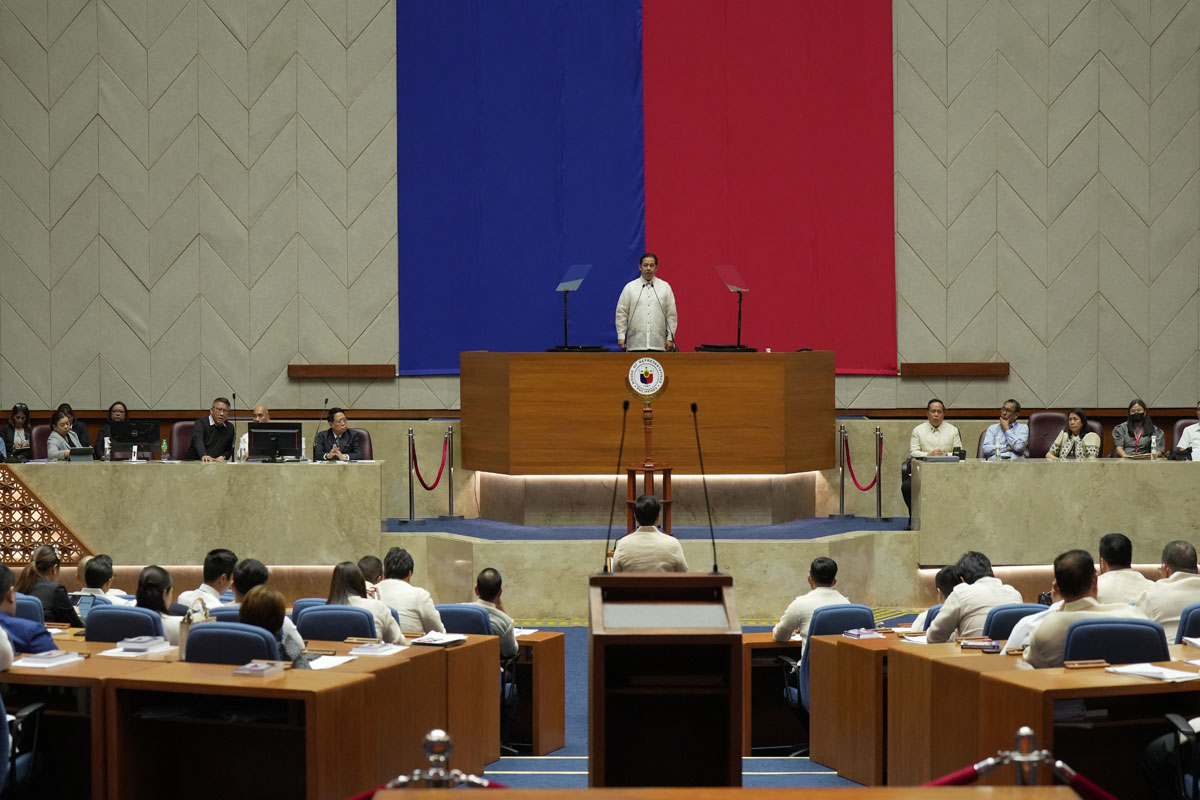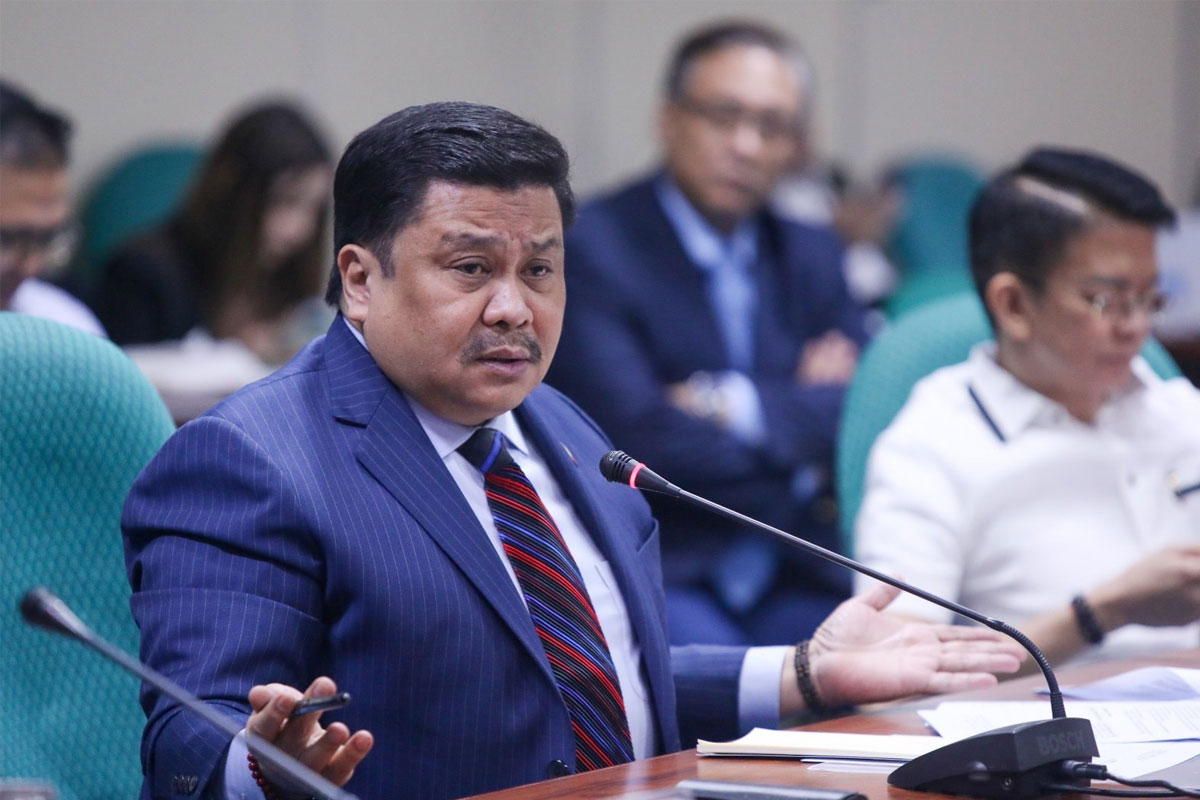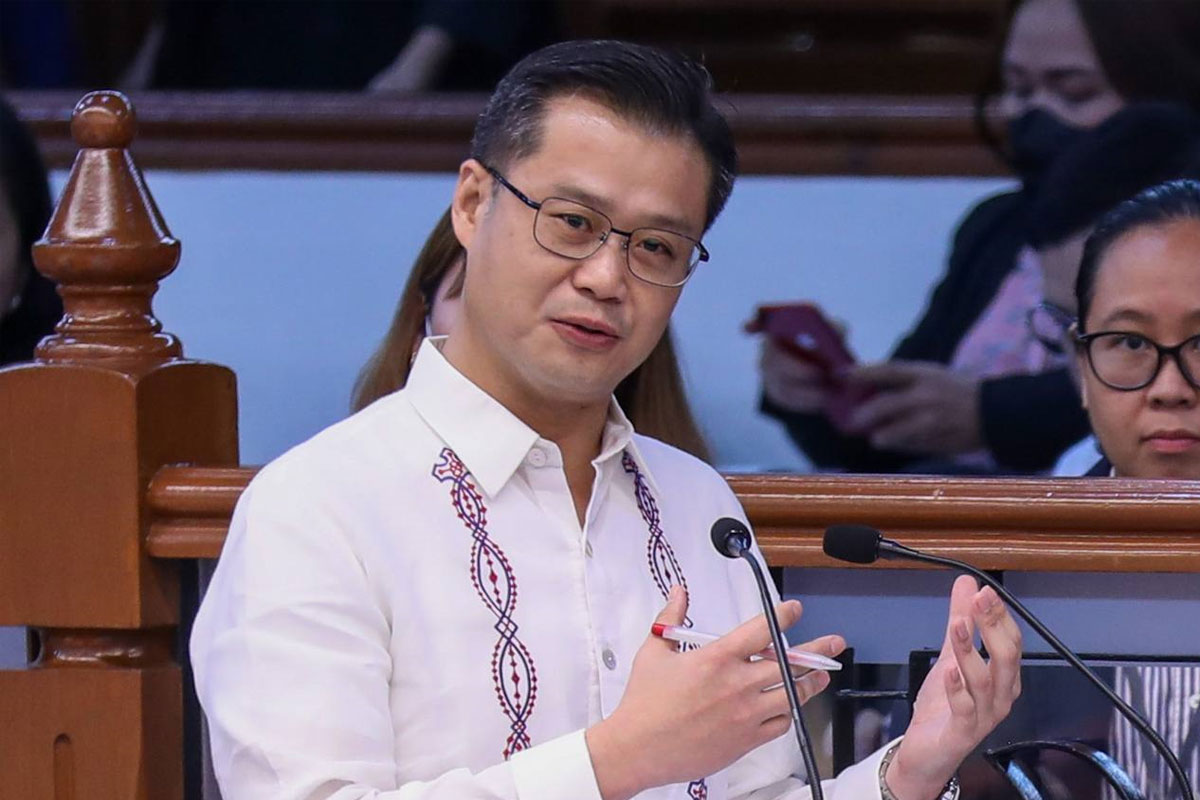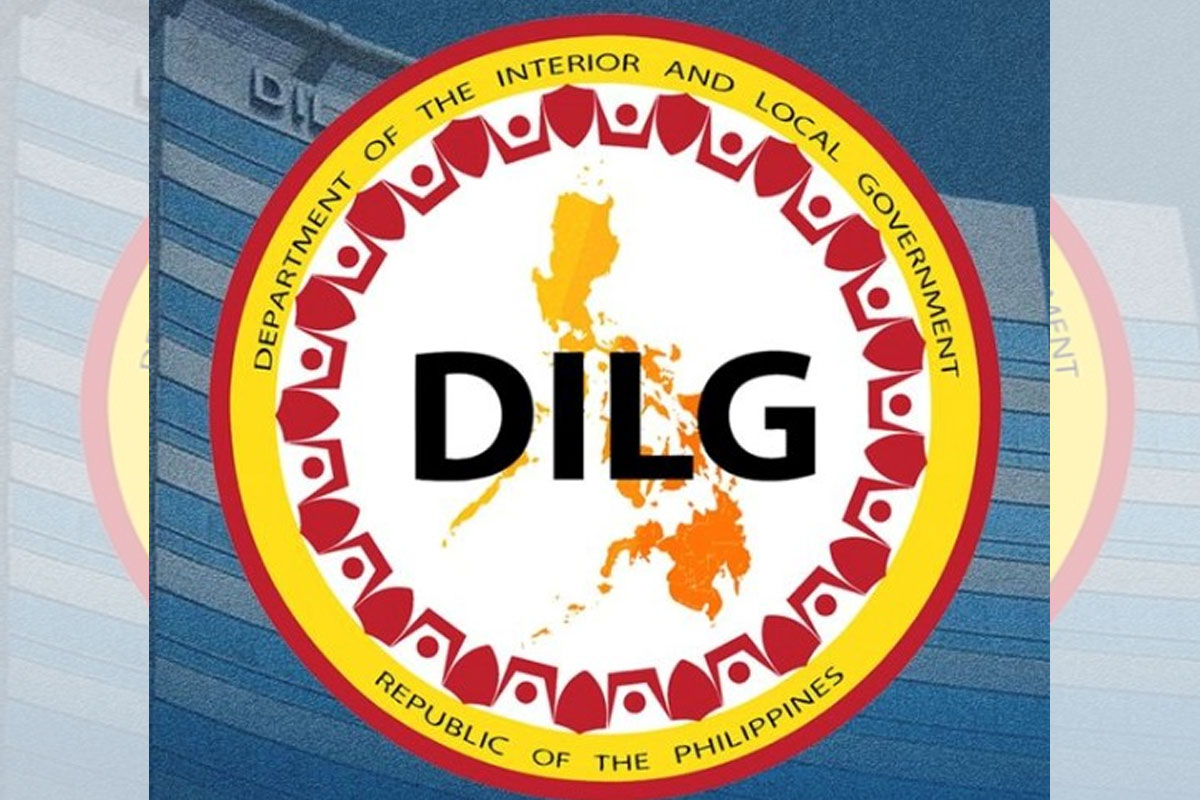 Source: FB
Source: FB
Villafuerte reminds DENR of EPR Law
On apt disposal, recycling by big firms of discarded plastic wastes
CAMARINES Sur 2nd District Rep. LRay Villafuerte has backed the move by the Department of Environment and Natural Resources (DENR) to link up with international institutions in checking pervasive plastic pollution, but said the DENR could strive for much better eco-friendly waste management by implementing fully a 2022 law requiring big companies to properly dispose of their products’ plastic packaging trash after these have been sold to and used by consumers.
Villafuerte, National Unity Part (NUP) president, lauded the Marcos government’s recent partnership with the World Economic Forum (WEF) on mobilizing communities behind the protection of the blue carbon ecosystem and the reduction of plastic pollution.
However, he said this initiative should be complemented by the DENR’s strict implementation of the Extended Producer Responsibility (EPR) Law of 2022 that requires manufacturers or producers, along with their distributors and retailers, to find ways of getting rid of their products in a more responsible and proper manner after these goods have been bought and used by the public.
“The EPR Law will mean nothing in our country’s green quest for a circular economy unless the DENR implements it in a more stringent manner in order to increase compliance by big companies with its mandate for them to sign up and commit to the sustainable way of disposing of their wastes, especially of single-use plastics,” Villafuerte said.
Both agreements on environmental protection were signed by DENR Secretary Ma. Antonia Yulo-Loyzaga, on behalf of the Philippines, and WEF Center for Nature and Climate managing director Neo Gim Huay, for the Geneva-based organization, on the sidelines of last year’s 28th Conference of the Parties to the United Nations Framework Convention on Climate Change (COP28) in Dubai, United Arab Emirates (UAE).
Huay said the two agreements cover the efforts of both the Marcos government and the WEF on catalyzing “a lot more communities, initiatives, public policy and corporate involvement in protecting our ecosystems,” particularly on restoring the blue carbon ecosystem and addressing plastic pollution.
“However,” said Villafuerte, “a better way for the DENR to implement this new partnership—and help arrest the unbridled plastic pollution in the country in a more effective manner—is by taking aggressive steps to reverse the low compliance by big companies with the EPR Law of 2022 that holds them responsible for getting rid of or recycling their products’ plastic packaging wastes after these have been sold to and used by consumers.”
“It behooves the DENR to ensure the full implementation of the EPR Law in support of the government goal of advancing a circular economy and mitigating the deleterious impact of climate change,” Villafuerte, a former governor and a lead author of the EPR Law, said.
He said that such a better approach to sustainable management of solid wastes also jibes with President Marcos’ new nationwide clean-up initiative “Kalinisan sa Bagong Pilipinas,” which was launched last January with the support of barangay and youth officials across the country.
Villafuerte said, “A more effective and sustainable way of disposing of trash, especially of single-use plastics, should top the DENR’s concerns, in light of a 2023 study that the Department itself had reportedly conducted with several institutions showing that 11 million pieces, or roughly 90% of the 12 million pieces, of marine litter collected from the Manila Bay coastline were plastics.”
Most of the plastic litter collected from 10 coastal areas in Metro Manila and Central and Southern Luzon were hard and film plastics such as single-use food sachets and plastic bags that are environmental and human health hazards, said Villafuerte in citing a 2023 monitoring survey that the EcoWaste Coalition did with the DENR, Korean International Cooperation Agency (KOICA) and De La Salle University (DLSU)-Dasmariñas.
The same study bared that plastic waste made up almost 60% of the total weight of the marine litter along the Manila Bay.
Villafuerte was one of the lead proponents of Republic Act (RA) 11898, which institutionalized the practice of EPR in waste management that imparts on producers, in coordination with their distributors and retailers, the responsibility of properly and effectively disposing of their products after these have been sold to and used by consumers.”
He explained that the goal of RA 11898 or the EPR Law is to reduce waste generation and improve the recyclability or reusability of such wastes as plastic containers or packaging materials as part of a wholistic approach in switching to an eco-friendly circular economy.
“Sadly, though, this government drive to reverse the worsening plastic waste pollution appears suffering from perfunctory implementation after Yulo-Loyzaga herself revealed last year that only about 600 or 15% of 4,000 enterprises obliged to practice EPR have thus far registered, in compliance with the EPR Law.
According to a report, the DENR revealed that as of February, the number of obliged companies that have registered in compliance with the EPR has increased to 900.
But this number, as of February 2024, represents only 22.5% of the 4,000 obliged companies, Villafuerte said.
He pointed out that under RA 11898, enterprises obliged to practice EPR that fail to register or to comply with this law face fines ranging from P5 million to P20 million and automatic suspension of business permits, depending on whether violators have committed their first, second or third offenses.
Villafuerte said that among the plastics-based products covered by RA 11898 are sachets, labels, laminates and other flexible plastic packaging products; rigid plastic packaging products like containers for beverages, food, home, personal care and cosmetic products, including their coverings, caps or lids and other necessities or promotional items such as cutlery, plates, drinking straws, or sticks, tarps, signage or labels.
Included, too, are plastic bags, particularly the single-use plastic ones used for carrying or transporting goods, and provided or utilized at the point of sale; and polystyrene, which is a resin of synthetic origin used in making food trays or containers, disposable eating utensils, and foamed cups bowls and plates, he said.
Obliged enterprises are, under the law, required to establish and implement an auditing system to monitor and assess their compliance performance with RA 11898 and their EPR programs, he said, and are mandated to engage independent third-party auditors to certify the veracity of their respective reported plastic product footprint generation, recovery and EPR program compliance.
In the 18th Congress, Villafuerte authored House Bill (HB) 9859 that was one of the measures incorporated into HB 10696, which, in turn, was reconciled with the Senate’s version of the EPR bill (Senate Bill or SB 2425), to come up with the final congressional measure that was eventually transmitted to the Palace for the approval of then-President Duterte.
This measure, which lapsed into law on July 23, 2022, amended RA 9003 or the “Ecological Solid Waste Management Act” of 2000 by requiring obliged enterprises to register and be responsible for the correct disposal of their products’ plastic packaging after their products have been sold to and used by consumers.
Loyzaga said last year that, “So far, we have counted 4,000 obliged enterprises. Unfortunately, we only have had around 600 that have actually registered. Some of those 600 have fully complied with what is required for the registration; the rest are still in the process.”
The DENR Secretary also candidly told reporters that, “We are not winning the war against single-use plastics … There is a huge social dimension that needs to be addressed and there must be replacement for single-use plastics. If we cannot replace single-use plastics, we will not be able to actually address the problem.”
Rather than lose heart, Villafuerte said the DENR Secretary should work on fully implementing this law and ensuring the strict compliance of the obliged companies with the law.
“If many of the obliged companies have not even bothered to register at this point, is it wrong to speculate that they probably haven’t made any effort yet to start with the proper disposal or recycling of their plastic wastes, as required under RA 11898?” he stressed.
He said the law mandated the establishment of the proposed National Solid Waste Management Commission (NSWMC) to see to it that big producers along with their distributors and retailers take charge of the proper disposal or recycling of their waste products after their goods have been sold to and used by consumers.
Earlier, the DENR described the implementation of the EPR Law as “a crucial step to the Philippines’ transition to the circular economy,” as it noted that the Philippines was cited in 2015 as the third largest contributor to ocean plastic, with approximately 0.75 million metric tons (MT) of plastic ending up in the seas and other waterways annually.
“The OECD (Organization for Economic Cooperation and Development) defines EPR as an environmental policy approach in which a producer’s responsibility for a product is extended to the post-consumer stage of a product’s life cycle,” Villafuerte said.
He added that EPR systems are now being observed in the European Union (EU) member-countries like Austria, Belgium, Czech Republic, France, Germany, Italy, Sweden and Spain.






